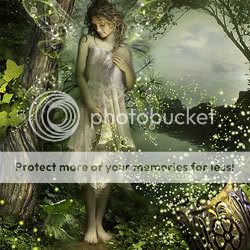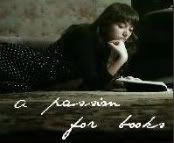
It seems counterintuitive, I know that, to write YA while not reading it. YA wasn’t big when I was young—you went from middle-grade/kids’ books onto adult books around 12/13. I started reading Mary Higgins Clark in seventh grade. By high school, my favorite books were by Kurt Vonnegut and Jack Kerouac. I didn’t want to read about people my own age, I wanted to imagine the adult life I wanted to lead.
YA has become much more popular, and broad, since I was a kid. I think that’s fantastic, but I’ve had a hard time with reading it, still. I’ve read the Hunger Games series and the Divergent books (both series my daughter loves), as well as several stand-alones, including the seeming kings of the heap, Perks of Being a Wallflower and anything by John Green.
I’ve made an effort to put myself in my teenage shoes, to remember what I liked and thought about at fifteen, sixteen years old. Overall, reading YA, I’ve felt my sixteen year old self would be insulted, pandered to, and treated to a PSA of some kind by the end of each book.
When I started writing At the Edge of the World, I didn’t immediately recognize it as a YA story. Once I was a chapter or two in, though, I realized I was writing what I would have wanted to read when I was a teenager: something with adventure, but with a heart, with mystery and a mix of grown-up and young emotions. I didn’t want to force a moral, or guild the outsiders.
Writing ATEOTW was a joy for me in this way. I wrote the way I want to talk to my teenage self, and how I would like to believe I’ll talk to my kids once they’re teens. The adventure I remember wishing for as a kid, coupled with things I cared about—including love stories (though maybe I never would have admitted it!).
I don’t believe teens are stupid, or have any reason for child-style moral retellings. Teens are in charge of so much more with every year now that escapism, coupled with an engaging story with relevant details, feels more genuine to me as a writer. And I hope readers feel that too.
I’m thrilled to be releasing At the Edge of the World this month. I loved writing it, and I am looking forward to others feeling the same joy as they read it.

Lost in the chaos of Venice Beach, among the homegrown freaks and weirdos, the tourists and life’s forgotten people, one runaway is just another face in the crowd—and this is just how Shane likes it. Torn between the home he left behind and lure of the ocean he ran to, something has tied his fates to the beach, and he is not the only one.
She is a famous mystery: the Venice Skater Chick. Shane has loved her since his first night on the beach. Others are watching her, too—and at least one wants her dead.
A mystery unfolds between the famed boardwalk, a dusty record store, a cramped apartment and a hidden cave. Under the gathering storms, Shane makes a desperate attempt to protect the girl he loves, and the life waiting for him on the other side.
Excerpt:
On each hand she pulled on the fingerless gloves. She tied the skates with those in place, legs covered by jeans, stomach and breasts by the tank top that stuck to her like skin. Maya fastened each piece to her like armor, rose to her feet like a giraffe first testing its legs, before she found her balance and rolled forward, picking up speed down the first slope that led towards the main part of Venice Beach.
It was comfort as much as it was a way to move: the wind on her skin and that rumble of wheels over the sidewalk. She never fell, but she suspected she would welcome that, as well, the connection to the earth, like a ribbon keeping her from breaking free entirely.
She never timed herself, but it was ten every morning when she appeared at the end of the boardwalk. The air was not too warm yet, and so maybe that was it: it still smelled salty from the ocean tide, the concrete holding the chill of the night. She could see herself at those times, like a bird, and she raised her hands just once, a wave to those she went past and never spoke to.
There was much speculation about what she did in the hours between ten and four, between four and ten, and the truth was: not a whole lot. She skated into the city sometimes, and back, but she couldn’t make herself move too far from the ocean at any time. She tried, a little bit at a time, like a child trying out steps away from her mother’s hands, but there was a pull that brought her in sight of the water, and her lungs always ached for the salty air, the wind that brought it in off the white caps. The city was full of smoke and harsh noises and grimacing faces, and though there were things she tried to see, to stare at, stand in, her feet always found her home.
Home was Venice. She skated over the little ornate bridges over the canals, up and down the streets of expensive houses and cars, past the flowers and leaning trees and smartly-dressed children.
And sometimes she did take the skates off. She stashed them in rental lockers and under abandoned stairs, in gardens no one was currently tending, and she let her feet meet the earth: the scalding surface of blacktop and the cool of grass, the grit of sand. She only did this when no one was around, when her hands were her own and her body was unnoticed.
Only Shane had glimpsed her this way. She knew why, and she didn’t, and why she didn’t rush away at first glimpse.
She simply couldn’t.
About the Author:

L.C. Spoering (generally known as Lorrie) lives in Denver, Colorado with her husband, kids, and too many pets. She has a degree in English writing from University of Colorado, and a lesser degree in sarcasm earned from the days of yore on AOL. A storyteller since she started talking, she now spends her days writing, reading and contemplating the universe through various pop culture lenses.
Lilt Literary links: Lilt Literary | Facebook | Twitter | Podcast































No comments:
Post a Comment
Thanks for commenting!